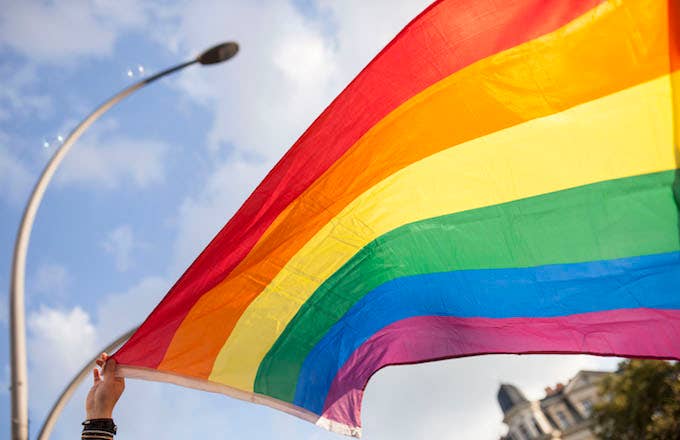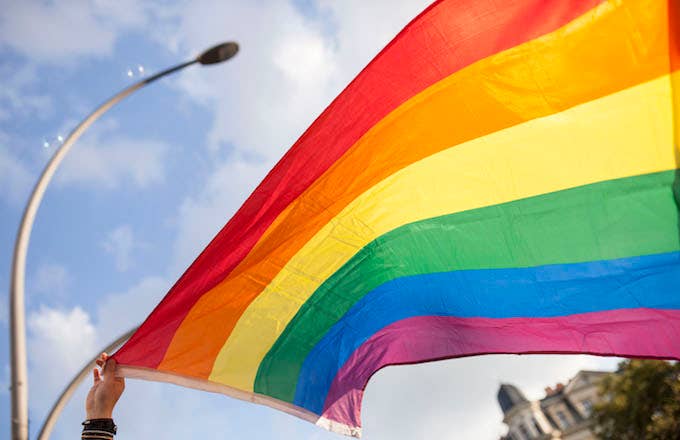
The National Coalition of Anti-Violence Programs released its annual report on Monday. As Jezebel points out, the report documented an 86 percent spike in anti-LGBTQ homicides from 2016 to 2017.
“We are releasing this report during a time when our communities are witnessing the few civil rights protections and policies being rolled back and discrimination being instituted into law,” the beginning of the report reads. According to the data provided, there were 52 hate-related LGBTQ homicides in 2017, compared to 28 in 2016. That's a rate of one homicide per week, and it's the highest number of homicides in the past five years.
Seventy-one percent of the victims in 2017 were people of color, and 24 were specifically transgender or transfeminine women of color. The study revealed other important statistics, including 67 percent of the victims were 35 and under, and 59 percent were killed with guns. The numbers do not include the 49 people murdered during the Pulse Nightclub shooting in Orlando in 2016, because the report focuses on individual homicides.
Though the report is thorough, the NCAVP points out that it is likely incomplete because of the nature of underreported or misreported crimes against the LGBTQ community. “NCAVP knows that the number of homicides is likely higher as some homicides of LGBTQ and HIV-affected people are not documented because of misidentification of victims’ sexual orientation or gender identity in media and other reports,” the report concludes.
NCAVP’s executive director Beverly Tillery told HuffPost that they will be releasing another report later this year with stats on all hate-related violence in 2017. Those numbers are likely to spike as well. “I don’t know whether all this is based on Trump’s beliefs or not, but at this point, it feels hard to imagine not,” Tillery said.
Read the full report here along with narratives of the lives lost in 2017.

